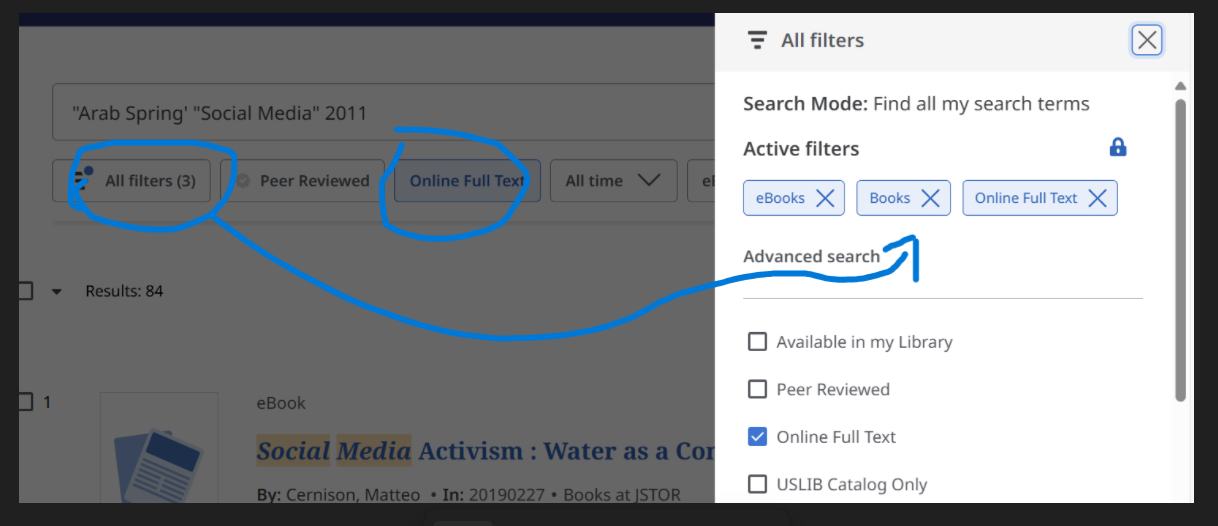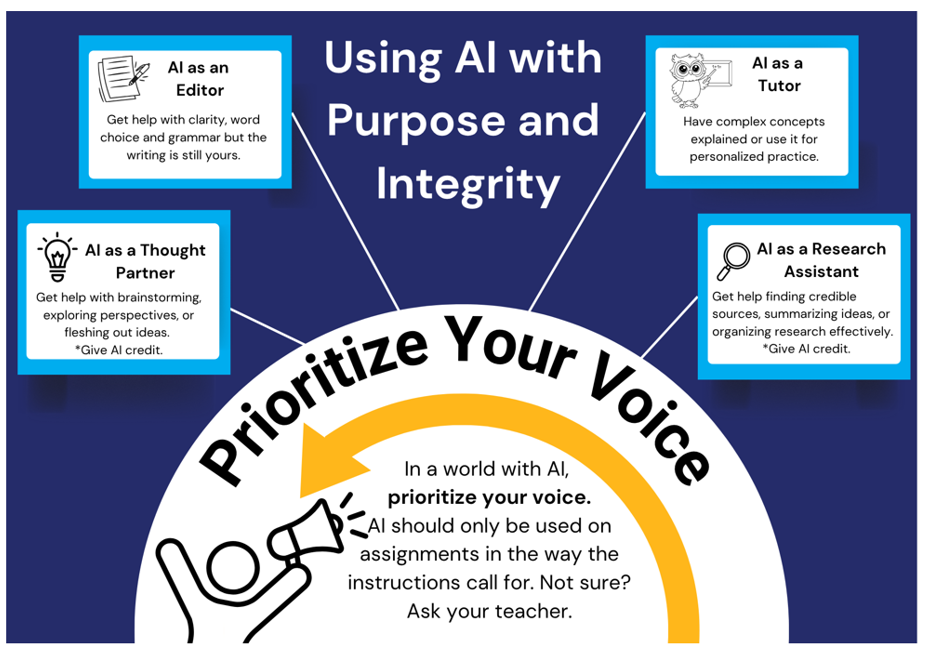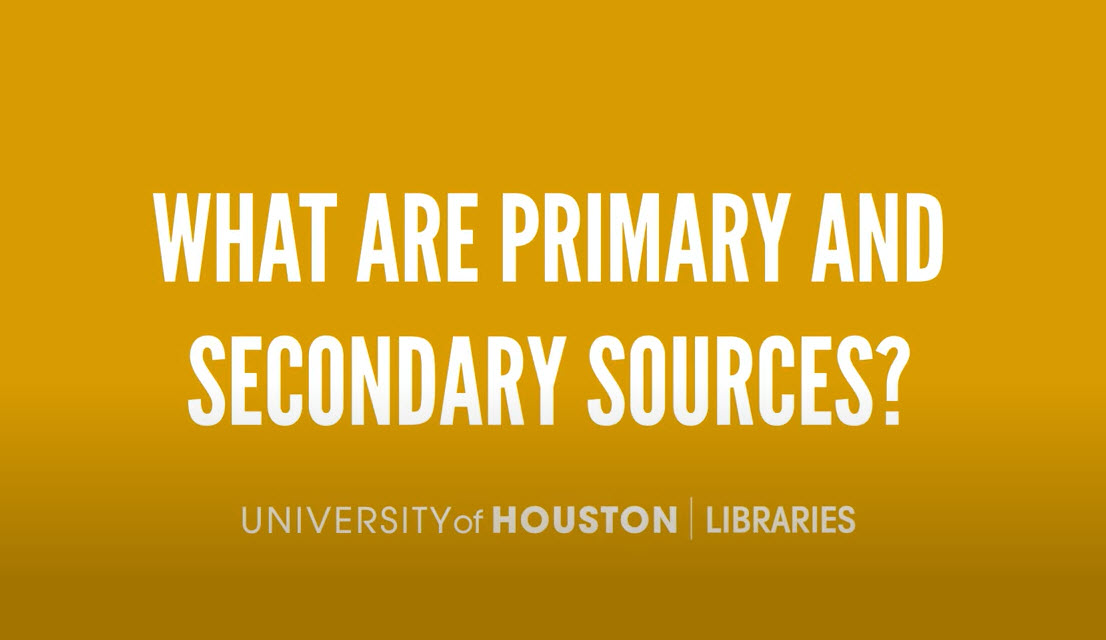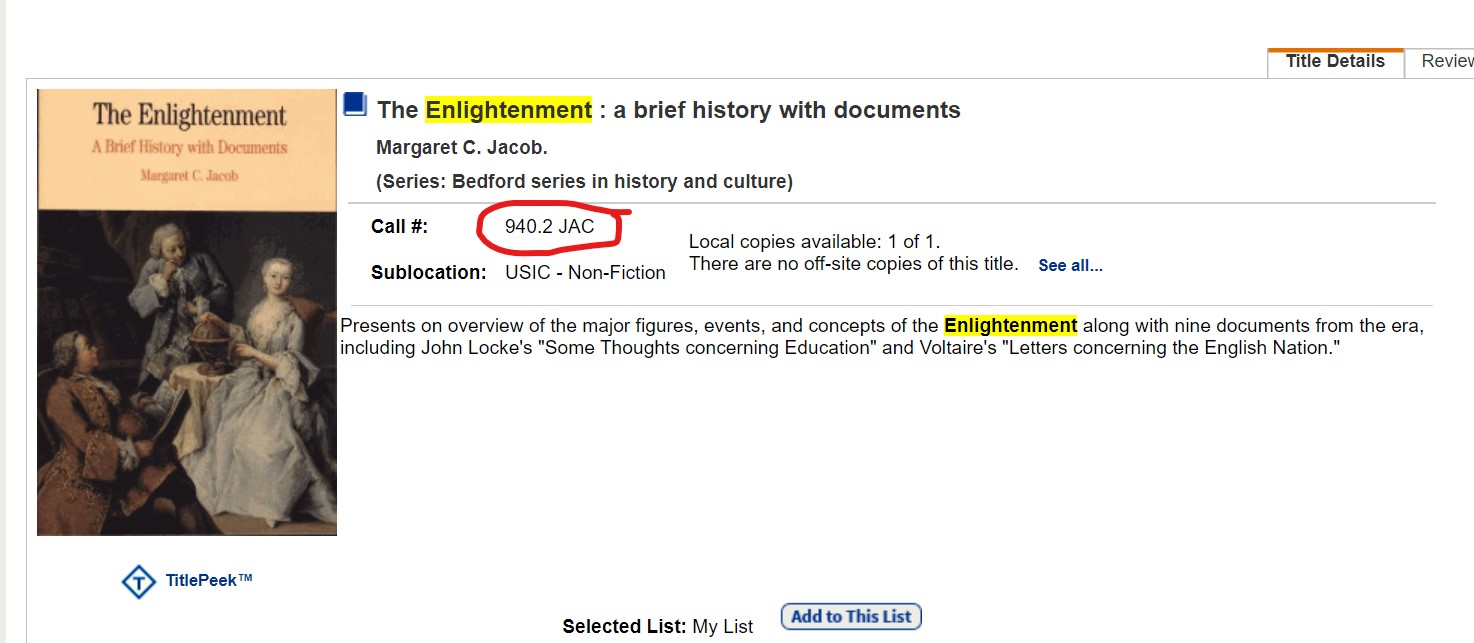The Student Guide in the poster below is created by AI for Education to help you decide when it is appropriate to use AI for a project or homework. The section "Yes, but" tells you when AI can be a useful research tool. Always consult your teacher before using AI so as to ensure it helps you meet your learning goals. [Content on this page updated January 28, 2024]
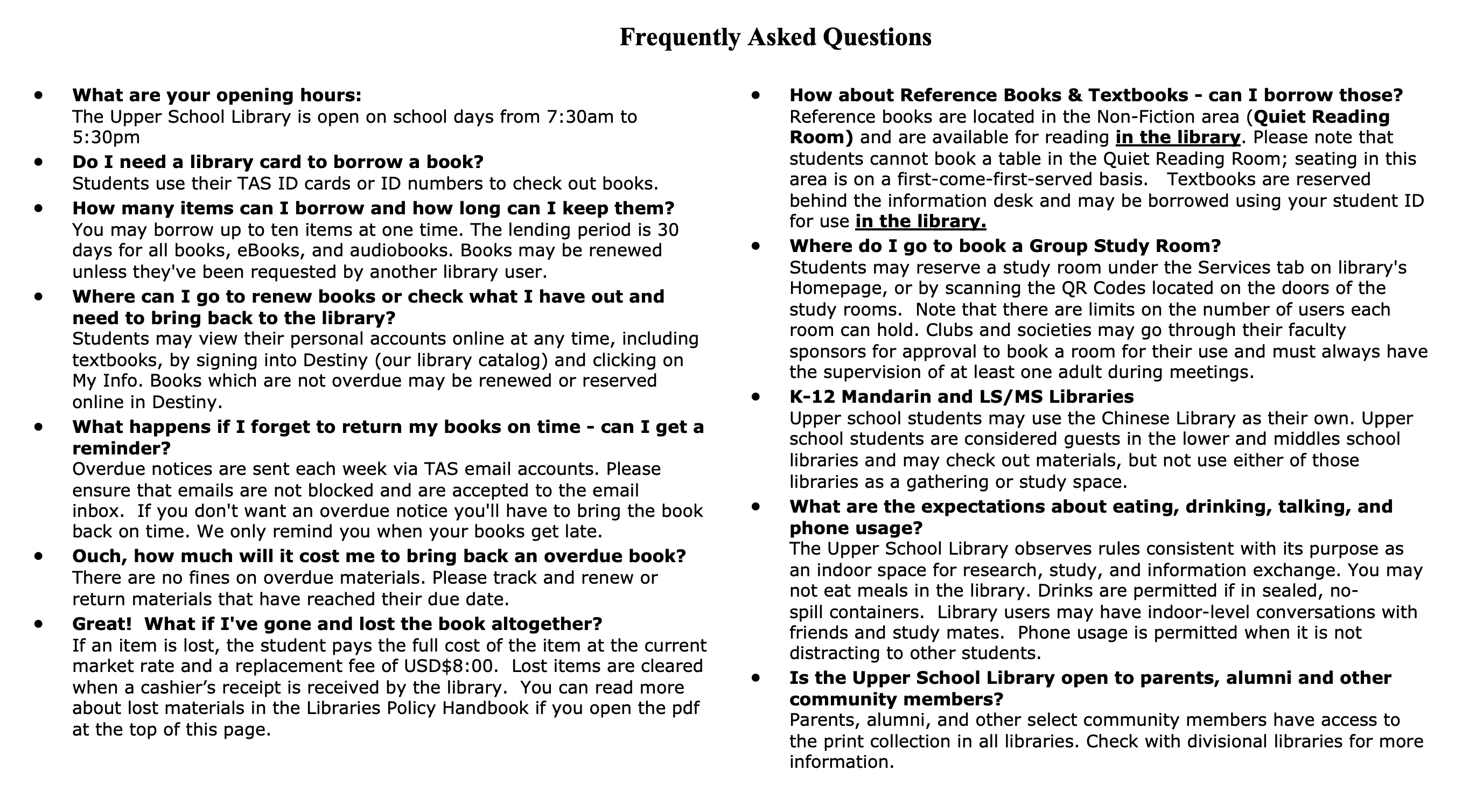
Image courtesy of AI for Education aiforeducation.io Image updated January 16, 2024 at AI for Education.
Below is some information on how to cite AI. Like most style guides, the Chicago Manual of Style (CMOS has information on citing AI. (Google Chicago Manual and the words AI or ChatGPT.)
Chicago 17th from Chicago Manual of Style FAQ
As of March 2023, Chicago only requires a note and states that there is no bibliography format.
In-text citation or note
Format Number. Text generated by name of AI tool, Month Day, year, name of AI developer, URL.
Example 1. ChatGPT, response to “Explain how to make pizza dough from common household ingredients,” March 7, 2023, OpenAI. https://chat.openai.com/chat.
Example when prompt for text in paper: 1. Text generated by ChatGPT, March 7, 2023, OpenAI, https://chat.openai.com/chat.
The FAQ's of Citing AI in Academic Research - A Guide by Chicago Manual of Style Online
Q. How do you recommend citing content developed or generated by artificial intelligence, such as ChatGPT? Many scholarly publishers are requiring its identification though also requiring human authors to take responsibility for it and will not permit the AI to have “authorship.”
A. You do need to credit ChatGPT and similar tools whenever you use the text that they generate in your own work. But for most types of writing, you can simply acknowledge the AI tool in your text (e.g., “The following recipe for pizza dough was generated by ChatGPT”).
If you need a more formal citation—for example, for a student paper or for a research article—a numbered footnote or endnote might look like this:
1. Text generated by ChatGPT, OpenAI, March 7, 2023, https://chat.openai.com/chat.
ChatGPT stands in as “author” of the content, and OpenAI (the company that developed ChatGPT) is the publisher or sponsor, followed by the date the text was generated. After that, the URL tells us where the ChatGPT tool may be found, but because readers can’t necessarily get to the cited content (see below), that URL isn’t an essential element of the citation.
If the prompt hasn’t been included in the text, it can be included in the note:
1. ChatGPT, response to “Explain how to make pizza dough from common household ingredients,” OpenAI, March 7, 2023.
If you’ve edited the AI-generated text, you should say so in the text or at the end of the note (e.g., “edited for style and content”). But you don’t need to say, for example, that you’ve applied smart quotes or adjusted the font; changes like those can be imposed silently (see CMOS 13.7 and 13.8).
If you’re using author-date instead of notes, any information not in the text would be placed in a parenthetical text reference. For example, “(ChatGPT, March 7, 2023).”
But don’t cite ChatGPT in a bibliography or reference list unless you provide a publicly available link (e.g., via a browser extension like ShareGPT or A.I. Archives). Though OpenAI assigns unique URLs to conversations generated from your prompts, those can’t be used by others to access the same content (they require your login credentials), making a ChatGPT conversation like an email, phone, or text conversation—or any other type of personal communication (see CMOS 14.214 and 15.53).
[Editor’s update: Original answer updated to put the publisher before the date and to acknowledge tools like ShareGPT and A.I. Archives.]
To sum things up, you must credit ChatGPT when you reproduce its words within your own work, but unless you include a publicly available URL, that information should be put in the text or in a note—not in a bibliography or reference list. Other AI-generated text can be cited similarly.
Q. Robots are being named and even developing personalities, not just in fiction, but in the real world. Should their names be italicized—i.e., “I told Benjamin to wait at the coffee shop,” where Benjamin is a robot with artificial intelligence?
A. Italics for robot names could be fun in fiction; however, that doesn’t seem to be the convention either in fiction or in real life. (An exception is generally made for named spacecraft and the like, including the robotic Mars rover Perseverance; see CMOS 8.116.) Before you decide what to do, consider asking some robots to weigh in.
For some considerations on the use of AI in scholarly publishing and the responsibilities of authors, start with this position statement on authorship and AI tools from COPE (Committee on Publication Ethics). Here is the Statement. It provides links to other useful sources.
COPE position statement on Authorship and AI Tools: The use of artificial intelligence (AI) tools such as ChatGPT or Large Language Models in research publications is expanding rapidly. COPE joins organisations, such as WAME and the JAMA Network among others, to state that AI tools cannot be listed as an author of a paper. AI tools cannot meet the requirements for authorship as they cannot take responsibility for the submitted work. As non-legal entities, they cannot assert the presence or absence of conflicts of interest nor manage copyright and license agreements. Authors who use AI tools in the writing of a manuscript, production of images or graphical elements of the paper, or in the collection and analysis of data, must be transparent in disclosing in the Materials and Methods (or similar section) of the paper how the AI tool was used and which tool was used. Authors are fully responsible for the content of their manuscript, even those parts produced by an AI tool, and are thus liable for any breach of publication ethics. Related resources - Artificial intelligence in decision making, COPE discussion document, Sept 2021
- AI and fake papers, COPE Forum discussion, March 2023
- Artificial intelligence in the news, latest update, April 2023
- Artificial intelligence and authorship, COPE editorial, February 2023
- The challenge of AI chatbots for journal editors, guest editorial, February 2023
- COPE position statements
First published: 13 February 2023 |
Want to learn More about ChatGPT and other chatbots? Who better to learn from about what Chatbots know than a CMOS Editor? Russell Harper, an Editor at CMOS, released an article on November 21, 2023, to bring awareness to Chat robots such as ChatGPT in academic research. The article is titled " What Do Chatbots Know?" and can be found by searching for the keywords "Artificial Intelligence" inside the Chicago Manual of Style Online
Content Source: Chicago Manual of Style Online, Accessed November 22-26, 2023
Did you know? TAS subscribes to Chicago Manual of Style Online. Think of this as the eBook version of the physical, print manual that you can borrow from the Upper School Library. Use Keyword searches as well as an extensive, up to date menu of contents to learn how to cite properly, and to correct citations that you have generated from databases.
Page updated January 28, 2024



